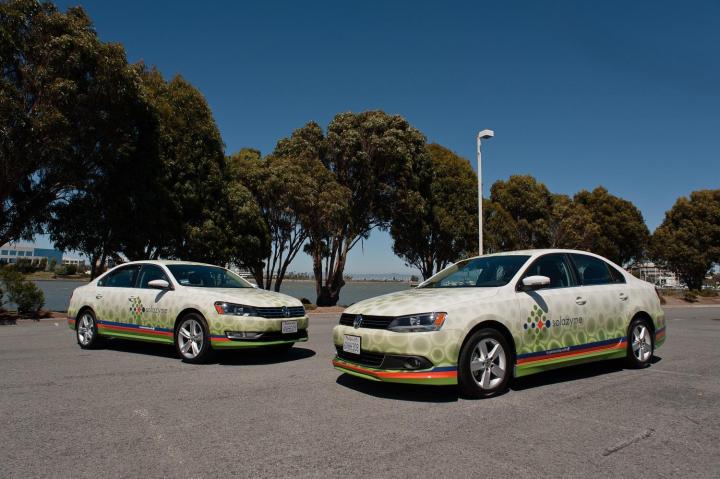
The two fuels used were Solazyme’s algae-derived Soladiesel RD and a plant-sugar-based fuel from Amyris. Neither fuel was commercially available at the start of the test, but Soladiesel RD has since become available to consumers.
Volkswagen tested the fuels in a 2012 Passat TDI and a 2012 Jetta TDI. Together, they logged more than 134,000 miles in real-world conditions, including both street and highway driving. Both cars used older diesel engines that have since been replaced, with the main difference being the lack of urea-injection systems for cleaning exhaust.
At the end of testing, VW concluded that the cars performed essentially the same as if they were running on crude-based diesel. There was no negative impact on driving dynamics, while fuel economy was similar to or better than with conventional diesel, VW said.
The renewable fuels didn’t trigger any engine warning lights, and no excess wear or part failures occurred that would have prevented the cars from operating under normal conditions with the green fuels, according to the automaker.
The two fuel producers claim switching from crude-based diesel to renewables could cut the “well-to-wheels” carbon emissions of the average car by out to 50 percent. Volkswagen engineers also noted that the two test cars produced much less soot than they would on diesel fuel from the pump.
Renewable fuels still aren’t widely available, but Volkswagen appears encouraged by the results of this test. It said engineers will continue to analyze the test cars’ engine components and other data “which could help in the enhancement of future vehicle components and refinement of renewable fuels.”
Editors' Recommendations
- Volkswagen is launching its own self-driving car testing program in the U.S.
- New coronavirus test promises to give you results on an app in 30 minutes
- Clean-energy startup backed by Bill Gates hopes to replace fossil fuels
- The Diesel On Axial might be the most unique-looking Wear OS smartwatch to date


